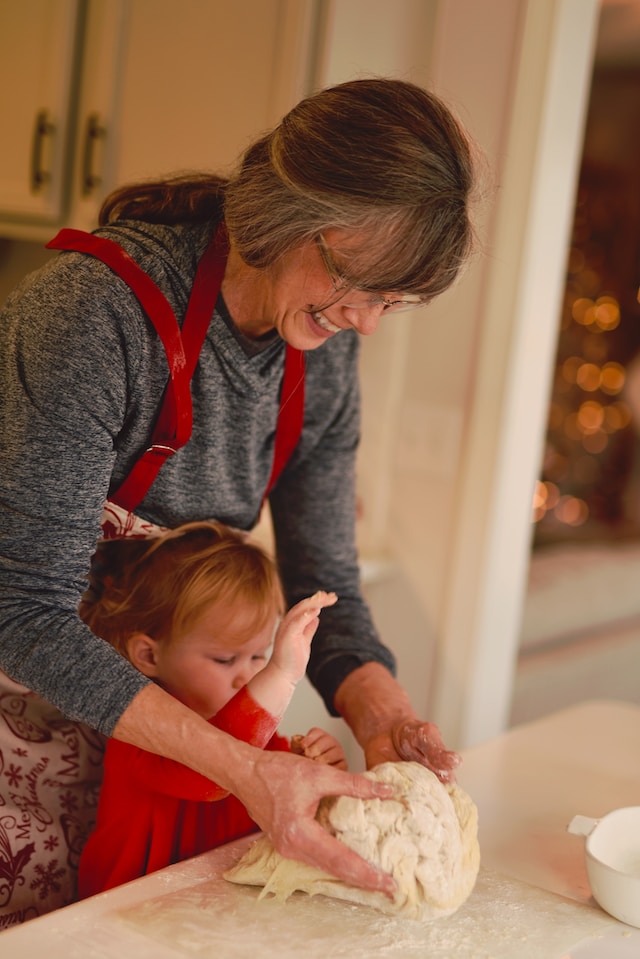Hey there, lovely readers! As we journey through life, we often find solace, joy, and a sense of belonging within the warm embrace of our families. In this fast-paced world, where everything seems to change in the blink of an eye, family traditions serve as the sturdy threads that weave together the fabric of unity and identity. Join me as we explore the beauty and significance of family traditions – those cherished rituals that nurture our bonds and shape who we are.
The Heartbeat of Unity: Understanding Family Traditions
Table of Contents
Every family has its unique set of customs, rituals, and practices that are passed down through generations. These traditions create a sense of continuity and unity, bridging the gap between the past and the present. They remind us of our roots, offering a comforting reminder of where we come from and the values that guide us.
Think about those Sunday morning pancake breakfasts that your grandmother used to make, or the annual camping trip that brings your family together like clockwork. These are more than just activities; they are the threads that connect family members across time and space.

The Essence of Identity: How Traditions Shape Us
Imagine traditions as the storytellers of our family histories. They not only reflect our identities but also play a role in shaping them. From cultural practices to personal rituals, traditions instill a sense of belonging and self-awareness.
For instance, celebrating cultural festivals imparts a strong sense of heritage and pride. These traditions connect us with our cultural roots and help us appreciate the diversity that makes our family tapestry rich and vibrant. Personal traditions, on the other hand, carve out our individuality within the larger framework of our family’s identity. Whether it’s a bedtime story passed down through generations or a special meal on birthdays, these rituals become an integral part of who we are.
Strengthening Bonds: The Power of Shared Experiences
At the heart of family traditions lies the magic of shared experiences. These experiences knit family members together in a way that mere words cannot. Through laughter, stories, and the occasional mishaps, traditions create lasting memories that bond us tightly.
The annual family game night where competitiveness reigns supreme, or the holiday ornament crafting session that results in unique decorations and joyful messes. These moments not only provide an opportunity for quality time but also foster a deeper understanding and appreciation for one another.
Passing the Torch: Keeping Traditions Alive
Preserving family traditions involves more than just following the motions – it’s about passing on the torch of culture, values, and love. As time moves forward and circumstances change, it’s essential to adapt traditions while retaining their core essence.
Engage the younger generation by involving them in the decision-making process. Let them put their spin on age-old practices, ensuring that traditions remain relevant and exciting. Perhaps your annual Thanksgiving feast could have a modern twist this year, with each family member contributing a dish that represents their unique tastes and experiences.
Creating New Traditions: Honoring the Present and Future
While cherishing the traditions of the past, it’s equally important to create new ones that reflect the evolving dynamics of your family. These new traditions serve as markers of growth, marking the chapters of your family’s journey.
Consider introducing a “gratitude circle” during family gatherings, where everyone shares something they’re thankful for. This simple yet powerful tradition fosters positivity and helps family members connect on a deeper level. Embrace change and let these new traditions take root alongside the old, forming a harmonious blend that tells a holistic story of your family’s unity and growth.
The Ripple Effect: Traditions Beyond the Family
Family traditions radiate their influence beyond the confines of your household. They contribute positively to the community and society at large, instilling values of togetherness, respect, and cultural appreciation.
Sharing your traditions with friends and neighbors not only fosters understanding but also encourages the exchange of diverse practices. This cross-cultural interaction broadens horizons and strengthens the social fabric.
Passing Down Values: Lessons Through Traditions
Family traditions are not just about the activities themselves, but also about the values and life lessons they impart. Think about the bedtime stories that teach morals, the annual volunteering day that emphasizes giving back, or the holiday donation drive that highlights compassion. These traditions serve as subtle yet powerful tools for passing down values from one generation to another.
Through these actions, we communicate what truly matters to us as a family. By participating in these traditions, younger members absorb the underlying principles and ethics, helping to shape their character. These values then ripple out into their interactions with the world, contributing to a more harmonious and compassionate society.
In Conclusion: Embrace the Threads of Unity and Identity
As we reflect on the significance of family traditions, let’s remember that these customs are more than just routines – they are the threads that bind us, the stories that define us, and the love that nourishes us. Whether it’s an annual family reunion, a bedtime lullaby, or a holiday tradition, these practices knit our family tapestry together, creating a strong and beautiful fabric of unity and identity.
So, dear readers, as you embark on your journey of preserving and creating traditions, remember that every gesture, every shared laugh, and every heartwarming moment is a stitch that adds to the masterpiece of your family’s story. Let’s continue weaving this fabric of love, identity, and unity, enriching the lives of our present and future generations.